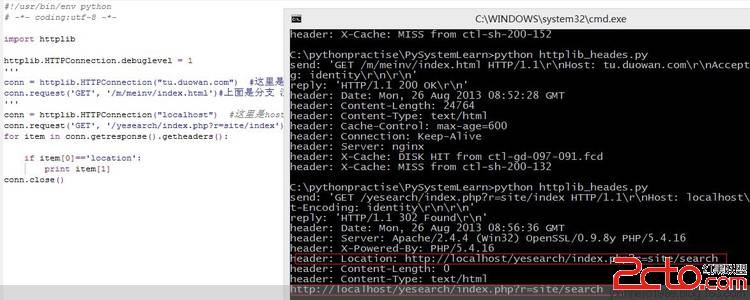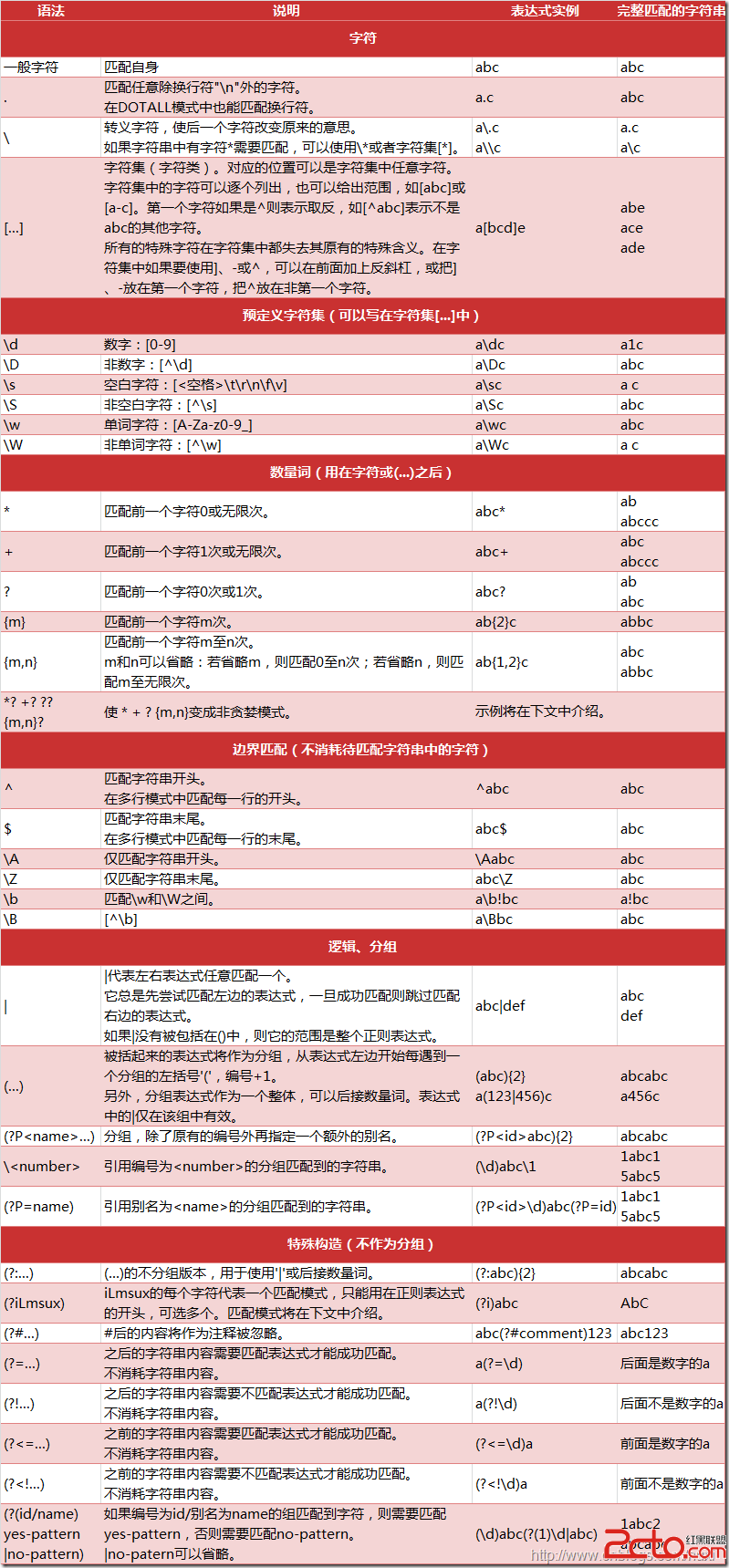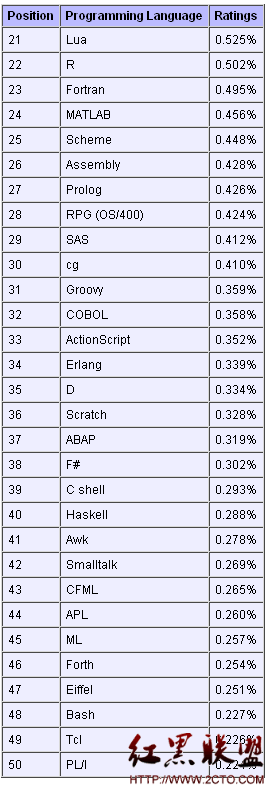python模块介绍- argparse:命令行选项及参数解析
python模块介绍- argparse:命令行选项及参数解析
2012-08-20磁针石
#承接软件自动化实施与培训等gtalk:ouyangchongwu#gmail.com qq 37391319 博客: http://blog.csdn.net/oychw
#版权所有,转载刊登请来函联系
#自动化测试和python群组: http://groups.google.com/group/automation_testing_python
#参考资料:《The Python Standard Library by Example》
#实验环境:Python 2.7.3 CentOS release 6.2(Final) 32bits
14.3 argparse:命令行选项及参数解析
作用:命令行选项及参数解析。
Python版本:2.7及以后版本
argparse模块于Python2.7引入,旨在替换optparse。
14.3.1建立解析器
import argparse
parser = argparse.ArgumentParser(
description=’This is a PyMOTW sample program’,
)
argparse是一个完整的参数处理库。参数可以根据add_argument()的action选项触发不同action。支持的action有存储参数(单个,或作为列表的一部分);存储常量的值(对布尔开关true/false有特殊处理)。默认动作是存储参数值。支持type(指定存储类型)和dest(指定存储变量)等参数。
然后使用函数parse_args()进行参数解析,这个函数的输入默认是sys.argv[1:],也可以使用其他字符串列表。选项使用GNU/POSIX语法处理,可以混合选项和参数值。parse_args的返回值是一个包含命令参数的Namespace。所有参数以属性的形式存在,比如args.myoption。
下面是一个简单的示例:
import argparse
parser = argparse.ArgumentParser(description='Short sampleapp')
parser.add_argument('-a', action="store_true",default=False)
parser.add_argument('-b', action="store",dest="b")
parser.add_argument('-c', action="store",dest="c", type=int)
print parser.parse_args(['-a', '-bval', '-c', '3'])
执行结果:
# pythonargparse_short.py
Namespace(a=True, b='val', c=3)
长参数也可以进行同样处理:
import argparse
parser = argparse.ArgumentParser(
description='Examplewith long option names',
)
parser.add_argument('--noarg', action="store_true",
default=False)
parser.add_argument('--witharg', action="store",
dest="witharg")
parser.add_argument('--witharg2', action="store",
dest="witharg2", type=int)
print parser.parse_args(
[ '--noarg','--witharg', 'val', '--witharg2=3' ]
)
执行结果:
# python argparse_long.py
Namespace(noarg=True, witharg='val', witharg2=3)
不同于optparse,argparse可以很好地处理非可选参数(没有’-‘等开头的参数):
import argparse
parser = argparse.ArgumentParser(
description='Examplewith nonoptional arguments',
)
parser.add_argument('count', action="store",type=int)
parser.add_argument('units', action="store")
print parser.parse_args()
没有指定类型的,默认是字符串。执行结果:
# python argparse_arguments.py 3inches
Namespace(count=3, units='inches')
# python argparse_arguments.py some inches
usage: argparse_arguments.py [-h] count units
argparse_arguments.py: error: argument count: invalid intvalue: 'some'
# python argparse_arguments.py
usage: argparse_arguments.py [-h] count units
argparse_arguments.py: error: too few arguments
参数action有:
store:默认action模式,存储值到指定变量。
store_const:存储值在参数的const部分指定,多用于实现非布尔的命令行flag。
store_true / store_false:布尔开关。可以2个参数对应一个变量。
append:存储值到列表,该参数可以重复使用。
append_const:存储值到列表,存储值在参数的const部分指定。
version 输出版本信息然后退出。
下面是各种action的示例:
import argparse
parser = argparse.ArgumentParser()
parser.add_argument('-s', action='store',
dest='易做图_value',
help='Storea 易做图 value')
parser.add_argument('-c', action='store_const',
dest='constant_value',
const='value-to-store',
help='Store a constant value')
parser.add_argument('-t', action='store_true',
default=False,
dest='boolean_switch',
help='Set a switch to true')
parser.add_argument('-f', action='store_false',
default=False,
dest='boolean_switch',
help='Set a switch to false')
parser.add_argument('-a', action='append',
dest='collection',
default=[],
help='Add repeated values to a list')
parser.add_argument('-A', action='append_const',
dest='const_collection',
const='value-1-to-append',
default=[],
help='Add different values to list')
parser.add_argument('-B', action='append_const',
&n
补充:Web开发 , Python ,




